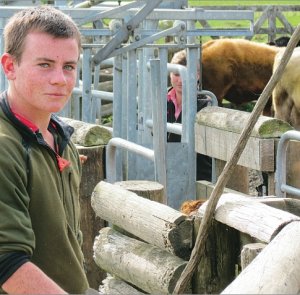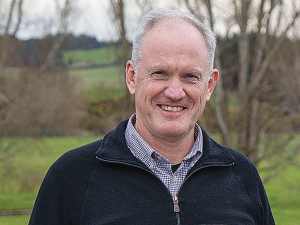It’s still a commercial farm, but since 2007 has had a hands-on two-year farm management education programme integrated with that.
The station is owned by Rob and Jenny Telfer and Nic and Andrew MacPherson. Their vision, with community and industry support, led to the establishment of Waipaoa Station Farm Cadet Training Trust in 2006.
The cadets learn their practical farming skills from station manager Rob Telfer and his staff, but also have time set aside each week for theoretical work which helps them earn NZQA certificates three and four. This side of the course and the general running of the programme is handled by Geoff Hornblow, a highly experienced farm manager who joined the Trust this year.
Home for the cadets on farm is a centre at a place called ‘Moonlight’ - about 7kms up and over a hill from the main yards. It was the station’s single men’s quarters but wasn’t being used so was taken over by the Trust.
The buildings are modern, with accommodation, dining, teaching and recreation facilities for the 10 cadets. All current cadets are male: over the years a few females have applied but to date none have made it through the selection process.
Participants pay just $5000 thanks to substantial subsidisation by the Trust which receives significant funding from local and national donations.
The Trust is based on a similar cadet training institute, Smedley in Hawkes Bay. The first five cadets took their place at Waipaoa in 2007 followed by another five, a year later.
And so it’s continued. The number of cadets in training is strictly limited to ten, partly because of accommodation, but also because there is only enough work for 10 cadets on the Station.
Hornblow says the course is heavily weighted towards the practical, based on good science and industry best practice, with the objective of turning out highly skilled young shepherds.
“In the first year there are more general topics around sheep and beef breeding, livestock management grasses, pastures those sorts of things. On the practical front it’s generally the type work that they would do as a shepherd on a farm – fence repairs and maintenance, repairing and building sheep yards and looking after stock water systems. They also get to learn the basics of driving a four-wheel-drive tractor with implements on the hill country.”
Health and safety is a high priority and a comprehensive orientation programme is run to ensure cadets have certain basic skills and understand the systems and procedures.
Station manager Rob Telfer and his staff manage the practical training of cadets. “I don’t have a say in their day to day farm tasks but I know what’s going on and where the boys are and make sure they have the appropriate gear,” notes Hornblow.
“For example, if they are going mustering, everyone needs to know whether they are taking their horses from Moonlight or from down at the station yards. The boys have to pack a lunch every day and are expected to take everything they need for the day with them in the morning.”
Cellphone coverage is at best patchy. It’s not a place for those whose lives revolve around social media. Hornblow says the boys are kept busy. Many are happy training their dogs in their spare time and in the second year there’s a comprehensive farm report to prepare. Weekends are free with some playing rugby or going on hunting trips.
“I’d like to think they go to town for a purpose, rather than just cruise the streets, and I try to provide some guidance about what to do in their spare time. Some of the boys get part-time work crutching or fencing. They can make good money at the weekends.”
Limited numbers make for good group dynamics and no one individual is allowed to dominate.
“It makes them good mates and guys on past courses keep in touch. They are all highly motivated and competitive and want to get their names on the honours’ board.”
While there’s competition on the course, the competition to get on it in the first place is considerable too. The Trust typically receives 35 applications for each year’s five places. About 20 are selected for interview.
“The big thing we are looking for is commitment to agriculture: young people who can see themselves having a long-term role in the sector.”
About half of applicants are from non-farming backgrounds. Hornblow says they are looking for those who have worked on farms at weekends and can show they have taken the initiative to prove their commitment to farming, and haven’t just been told to do it.
“They have to be people who will go out in the bad as well as the good weather and who want to be practically involved in farming but accept that formal training is part of the pathway.”
Employment prospects for Trust graduates are very good. “They should be able to step into any shepherding job involving a large sheep and beef operation or intensively farmed properties. There are lots of opportunities for them in the Gisborne area and to advance their careers. We’d expect them to be up to a manager’s job within ten or fifteen years of leaving here.”

















